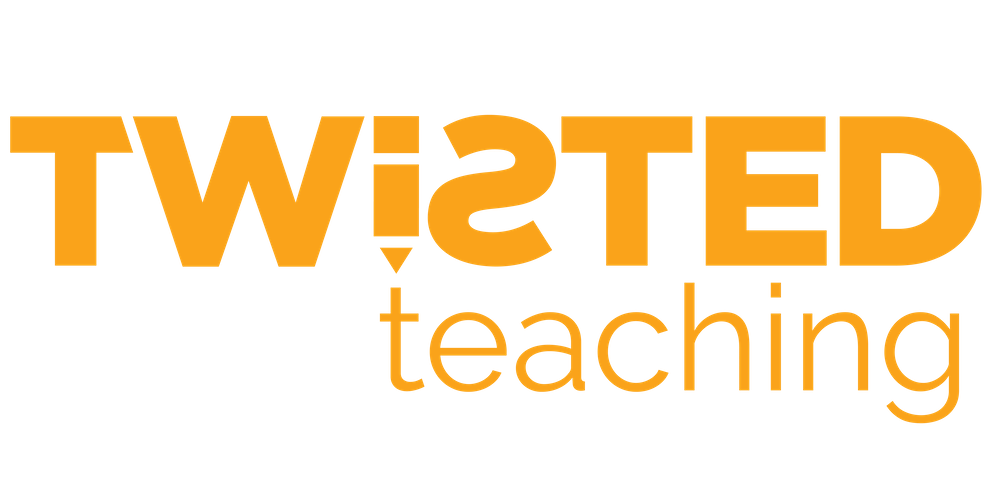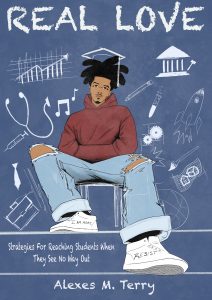It seems that this year’s theme for me, personally and professionally, has been #growthmindset. If you follow me any on Twitter, lately I have been doing a lot of tweeting about how I am pushing myself to grow as an educator and how I am also pushing my students to seek out areas of growth. As educators, we sometimes tend to complain and gripe when it comes to Professional Development and other growth opportunities that take us away from our students. However, I have come to acknowledge that when I grow, my students grow right along with me. Isn’t that what we want?
A little bit of growth has never hurt anyone so why is it that we run from it or we are forced to do it? The nature of education is constantly changing and in order to remain knowledgeable in our field, and relevant to our students, we must find ways to meet them we they are and how we can creatively bring them to where we want them to be.
 This year, I have taken on many opportunities for growth. While some could have been done at another time and others were literally a waste of time (I promise I tried to find the good it them), the best PD I decided to partake in, this year, was signing up for Graduate School and working towards a second Master’s Degree in Education with a focus on Urban Education. Now, I know what you’re thinking, “graduate school does not really count as professional development.” However, if anyone is looking at how they can grow professionally and use their “growth” to revamp their teaching style/transform their classrooms, graduate school is the way to go–or at least taking some form of advanced educational classes.
This year, I have taken on many opportunities for growth. While some could have been done at another time and others were literally a waste of time (I promise I tried to find the good it them), the best PD I decided to partake in, this year, was signing up for Graduate School and working towards a second Master’s Degree in Education with a focus on Urban Education. Now, I know what you’re thinking, “graduate school does not really count as professional development.” However, if anyone is looking at how they can grow professionally and use their “growth” to revamp their teaching style/transform their classrooms, graduate school is the way to go–or at least taking some form of advanced educational classes.
When I entered my teaching career seven years ago, I entered fresh out of graduate school (History major) and via the alternative certification route. While I had no formal training in education, God blessed me with certain “teacher qualities” that helped me make it this far. While I was successfully in the classroom, comfortable with the content I taught, and effective when it came to reaching students, for years I was unsure of the “why” behind what I was doing and how I was doing it. I was self-taught when it came to educational theory and all of that other stuff you must know to be a teacher, but there still existed this void inside of me when it came to really understanding my students, what they need to be successful, and how the environment in which they live, and I teach, shape the culture of my school and classroom.
As an Urban Education major, during the first semester, the first two courses I enrolled in were Urban Education and Teaching In An Urban Environment. While both courses have changed the way I operate in the classroom and relate to my students, my Teaching In An Urban Environment course, has really helped me work through this “why” question and so far has tremendously changed me as an educator. My transformation started the first day of the course when our professor released her syllabus and explained her grading policy. She wrote, “while I have weighted each requirement with a point value, these values will be assigned democratically; this is, you and I will decide together what each point value should be” through Weekly Self Assessments. In my head, I automatically thought “what?! This can’t be right. If so, this is awesome!” Being in graduate school before, I was curious as to how this would work and her “why” behind Weekly Self Assessments.
To answer the questions she knew we were going to have, she challenged us to read Alfie Cohen’s The Case Against Grades and consider the “why” behind our grading practices in our own classrooms. After reading Cohen’s article, which so happened to also be my first day of school (in the classroom), I immediately pulled up my own course syllabus and revamped my classroom to make it more “democratic”. To admit, that one change has made a tremendous difference to my classroom culture and how my students assess themselves and the work they submit. While I first thought it was going to be a “blow off” because students were all going to give themselves 100s, I was shocked when I saw my students actually reflecting over their week in my course and being honest about where they felt there was room for growth. I must admit that when students submit their Weekly Self Assessments, they are actually harder on themselves than I would have been on them (If you are interested in what a Weekly Self Assessment looks like, click here). Weekly Self Assessments have also made my grading load a lot lighter and has giving me something to look forward to when I settle down on a Friday night with a cup of coffee. My students also look forward to completing their Weekly Self Assessments because they enjoy having the opportunity to communicate to me how they feel about the structure and progress of the course and also know that their voices are being heard, thoughts and ideas are being considered, and they have input in the way the course is operated.
“We have to teach our students to understand that people are making decisions about them without them”. These words, passionately communicated by Christopher Emdin in a TED Talk on Urban Education have deeply resonated with me after viewing it multiple times. I was so moved by the words of Emdin that I shared his TED talk with my students and any colleague that would watch. One of my main goals as an educator is to teach students to be their own advocates. While some of them rely on their parents to serve as their voice, there are many students who do not have that pleasure. Either way, students need to understand that their voices matter and they must be their own activists when it comes to THEIR education. Emdin’s words also challenged me to look at my classroom through a different lens. While I sought to empower students to have a voice in their education, I did not create a democratic environment in my classroom that allowed them to make decisions about what they learned and how they learned. Coming to this realization, I made another change to my teaching style and created a space where students play an active role in shaping lessons and deciding how they will be evaluated. We are still working this one out, but I am confident that we will get there.
The area that I felt I was well versed in–understanding students from an urban environment–is the area I feel I have developed the most even though I am only getting started. Prior to this school year, I felt I was the master teacher when it came to relating and educating students who lived in urban areas. I thought I understood them because I was once them. However, via the readings and media provided through Teaching In An Urban Environment, I have come to realize that our students who live in urban areas of the 21st century face greater challenges that I was not exposed to growing up. Because of these challenges, these students, and the way we seek to educate them, must be approached from a different angle all the while offering them opportunities to experience this world through a different lens. While some educators may see students in urban schools as “not up for the challenge,” I have come to see teaching in an urban environment as the perfect opportunity to challenge students who see no way out to look at education as a means to their way out. Because of this, every opportunity that I can offer my students I do, because I know that the mere thought of someone believing in them can make a world of difference.
The field of education is not for lighthearted. As educators, we must be passionate about what we do and search for every opportunity to offer our students the tools they will need to be successful in this changing society. However, we can not meet them where they are if we refuse to seek what they need and an understanding as to how our unwillingness to grow can stifle the growth we hope to see in our students. I am not content with just being a “teacher” to my student. To them, I want to be the BEST teacher they have every had. When they see me, I want them to see someone who is constantly seeking out ways to improve and become a master at my craft. Because of this, I was crazy enough to become a graduate student all over again (as if one Masters Degree and a thesis wasn’t enough) and I must admit that, so far, this has been one of the best Professional Development opportunities for me. If you’re looking for ways to grow in your career, take courses towards a M.Ed…the teacher in you won’t regret it!



